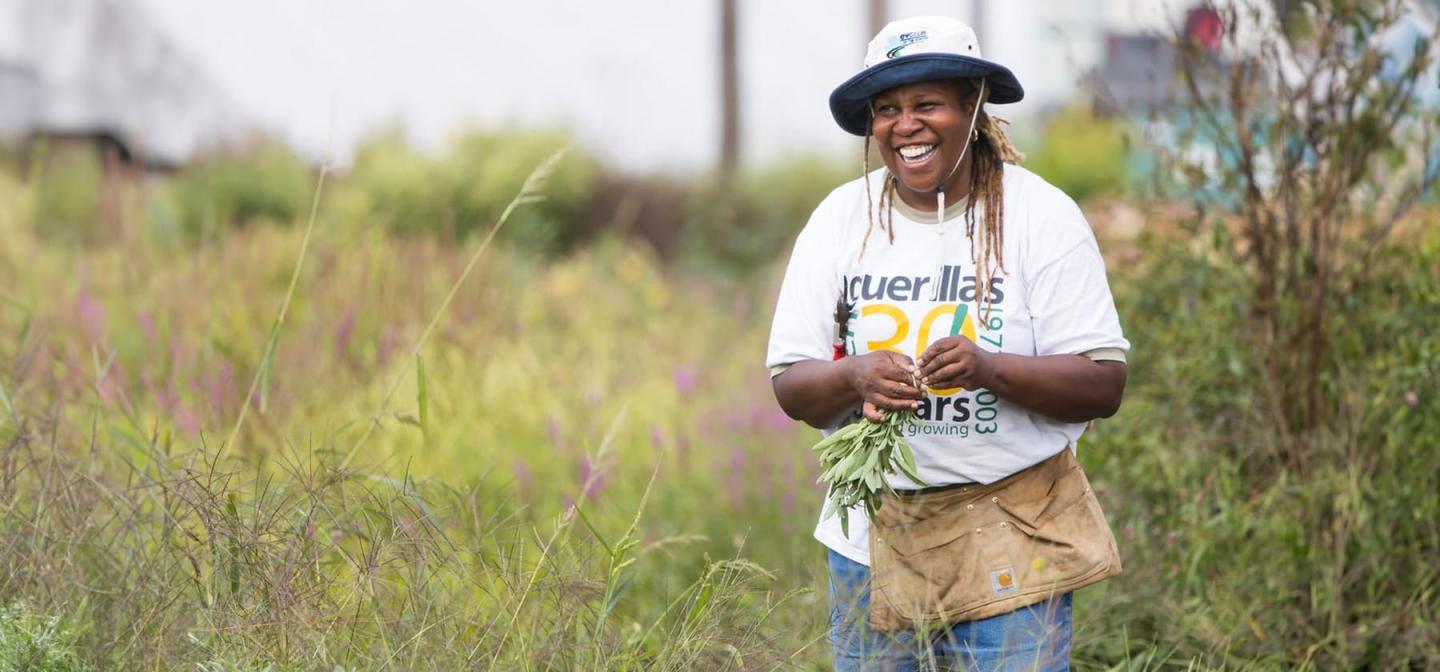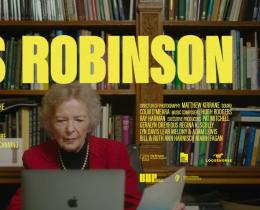Farmer-activist Karen Washington and social entrepreneur Olivia Watkins founded the Black Farmers Fund in 2017, a nonprofit that acts as a racially just investment fund to support Black farmers, agricultural businesses, and food entrepreneurs. In 2023, Karen and Olivia received the Humanitarian of the Year prize at the James Beard Awards for their efforts. We had a chance to talk with Karen about social justice, the power of food, and her ancestors.
Omega: What is the Black Farmers Fund and why was it created?
Karen: We are an integrated investment fund aimed at helping Black farmers and businesses succeed across the Northeast. The fund was created because the traditional lending institutions were not interested, nor successful in helping Black farmers or businesses to succeed. We needed to have a fund that was community centered, provided technical support, and was aimed at understanding the culture in helping Black farms and businesses to succeed.
Omega: What does it mean to you to be awarded the Humanitarian of the Year prize at the 2023 James Beard Awards?
Karen: It was a complete surprise, but I was extremely humbled and grateful. First and foremost, for Olivia [Watkins] and me to be the first African Americans to receive this prestigious award is mind-blowing. Just goes to show we as Black people still have a long way to go to be recognized and accepted in the food world. Our work at the Black Farmers Fund is to bring attention to the fact that only one percent of US farmland is owned by Black farmers, and that there is a 14-to-1 racial wealth gap as we see the Black farmer disappearing before our eyes.
This is a humanitarian crisis that we had to bring to the forefront. To have it be ignored or neglected would mean that several decades from now, there would be no Black farmers—meaning our food system would be controlled by one race of people—namely white people. By receiving this award, I wanted folks to see the humanity in me, fighting for a cause that is right and just.
Omega: In an interview with the James Beard Foundation, you say food is powerful. Can you explain why it’s so powerful?
Karen: Food is the essence of life. We need food to survive, but it is something we take for granted. As consumers, many of us never ask who grew the food, where did it come from, was it sprayed with chemicals, were the farmer and or farm workers treated humanely. Yet knowing where your food comes from gives you power. The act of growing for oneself or the community is powerful.
Omega: How can we make our food systems more just and equitable?
Karen: We as a people must be proactive instead of reactive. Meaning, we must ask questions about our food system, be conscientious consumers, and make food companies, businesses, and politicians more accountable. I always say we live in the greatest country in the world where we grow enough and waste enough food, and yet we have hunger and poverty. Call out injustice when you see it and, yes, use your economic power to demand change. As long as I have breath in my body, I will stand up against injustice to fight the inequities in our food system.
Omega: You have worked to help get Black-owned and operated farms off the ground. Can you give us an example of one farm that stands out?
Karen: Rocky Acres owned by Raphael Aponte. I met Raphael when he was starting out growing food in the Bronx in a community garden. He became a student at Farm School NYC, a school that I help start in 2010. After graduating in 2011, he wanted to pursue his dream of one day owning his own farm. So in 2013 he decided to leave the Bronx and start his own farm on 30 acres of land in upstate New York fondly named Rocky Acres. We are all so proud to see that Raphael accomplished he dream not only as a farmer, but as an activist and educator as well.
Omega: What can we learn from our ancestors when it comes to our food systems and farming?
Karen: I grew up in a time when farming as a Black person was synonymous with slavery. It took years of my own decolonization and healing to uncover the truth. Slavery is part of American history, but it does not define who we are as African Americans. We were taught in our history books that we were savages, ignorant, subservient, and in some instances loved being a slave. What the f*ck?!
The truth is we were brought here to the shores of the low country because of our knowledge of agriculture. We sowed the seeds, grew the food, made the farming implements and techniques. I now know that agrarian culture is in my DNA, the color of my skin is soil, the texture of my hair shields the harmful rays of the sun. My ancestors knew that we are farming people, therefore never be afraid of the land but embrace the land, steward the land, go back to the land.
If you take care of the land, the land will take care of you.



